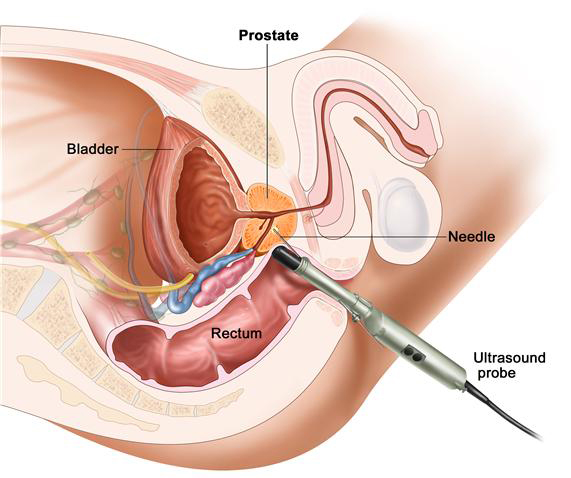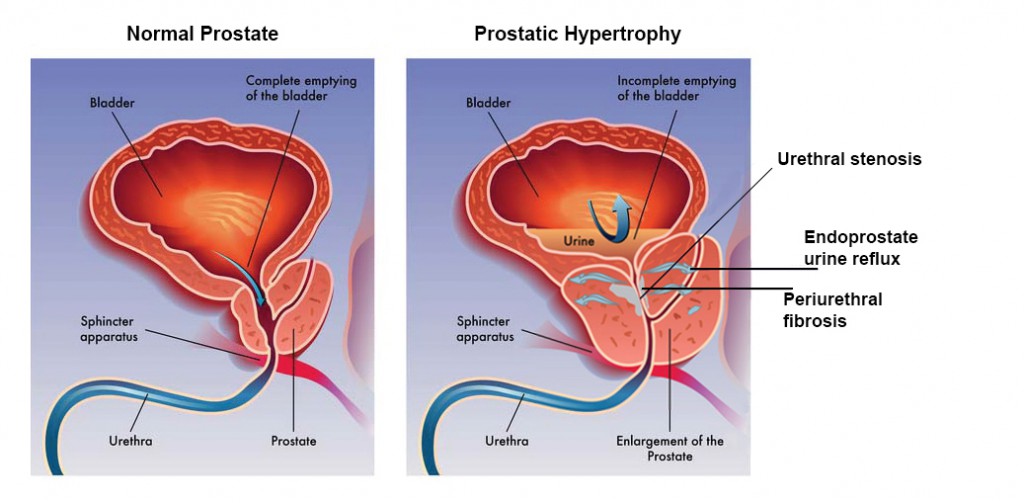Prostatitis Symptoms And Options Overview By Canadian Health&Care Mall
Among problems men can encounter with their health, prostatitis is perhaps one of the most excruciating ailments to deal with. Canadian Health&Care Mall offers a brief outline of acute and chronic conditions with available treatments and recommendations.
Acute prostatitis symptoms
Acute prostatitis often comes suddenly and begins with a stomach ache and trouble urinating. It is normal that you get a lot of pain while getting a high fever, chills and feel a lot under the weather in general. Other symptoms may be:
- you experience pain in the lower back, lower abdomen and genitals.
- pain that radiates down toward the groin, into the scrotum, penis and the area between the scrotum and anus.
- it hurts to sit
- it is difficult to urinate, or to the burning or painful
- you need to urinate more often
- it hurts during ejaculation.
Search care at a clinic or emergency room if you have a lot of pain in the abdomen accompanied by fever and chills.
If you get diagnosed with acute form of prostatitis, you need to get treatment with antibiotics. Sometimes you need to get antibiotics injected directly into the blood at a hospital. When you feel better, or you do not have such severe symptoms, you will be most probably prescribed antibiotics in tablet form for a therapy that lasts three to four weeks. If you have trouble urinating or cannot urinate at all, ask your practitioner for a bladder catheter so that urine can pass freely.

So what should you brace yourself for during diagnosis? The doctor does a physical examination and will palpate particularly the stomach, penis and scrotum to determine if there are any pathological changes. This might feel very challenging to bear if you are in a lot of pain, but fortunately, this does not take long. The prostate itself is examined by way of inserting a gloved finger into the anus. The survey may feel uncomfortable and hurt a little.
You will also be asked to take a urine test to see if there are bacteria or traces of red or white blood cells in the urine. If your doctor thinks you have a sexually transmitted disease, you will have to provide specific test results for gonorrhea and chlamydia. Patients with acute prostatitis accompanied with high fever and other such severe symptoms get blood tests to check that the internal organs such as the liver and kidneys are working properly.
What happens in the body when you get prostatitis?
The prostate is a gland located around the urethra just where it leaves the bladder and goes out of the penis. The prostate forms of transport fluid for sperm. Just below the prostate there is a muscle called pelvic floor plate, which is an erectile muscle in the lower part of the pelvis. Prostatitis means the prostate becomes inflamed. Then it becomes sore and swollen. Sometimes, inflammation spreads even further towards the pelvic floor muscles.

Acute prostatitis is caused by bacteria. It could be bacteria found in the vagina that goes up in the urinary tract, such as coliform bacteria or intestinal bacteria. It can also be triggered by a sexually transmitted disease such as chlamydia or gonorrhea. It is very unusual, but you can also get prostatitis after a so-called prostate biopsy, a survey that you might be asked to undergo when the doctor suspects cancer.
Acute prostatitis usually heal well after treatment with antibiotics, and most patients never experience the symptoms again. But for some, acute prostatitis recurs or progresses to chronic prostatitis.
Chronic prostatitis survey
Chronic prostatitis is also known as chronic pelvic pain, because sometimes it’s the pelvic floor muscles that are affected and hurt and not the prostate. Common symptoms of chronic prostatitis normally are:
- pain in the lower back, lower abdomen and genitals and that the pain radiates down toward the groin, into the scrotum and penis.
- it hurts to sit
- you need to urinate more often
- you have trouble urinating or you experience stinging feeling during urination
- you have pain during ejaculation
- chronic prostatitis usually come slowly and develop over a few days or weeks.
Contact a health clinic if you suspect you have had prostatitis.
Before you see your doctor
If you are suffering from prostatitis pain, there are some things that you can do yourself to relieve symptoms as part of emergency treatment:
Stay warm. Cooling can aggravate symptoms. Therefore, it is good to take warm baths and dress warmly. Avoid sitting on cold surfaces or go with the wet clothes after swimming.
Have regular ejaculations. Secretions that stops the prostate gland can be a cause of prostatitis.
Monitor your bowel movement so that you do not get constipation pushing against the prostate. For this, eat foods rich in fibre and opt for an overall healthier diet.
In order to establish the diagnosis, your doctor will subject you to the examination that is basically the same as those engaged for determination of acute prostatitis and described above. The prostate is examined with the help of finger inserted into the anus. If you have prostatitis, the prostate tends to get a little swollen and sore. In most cases, blood works will also be appointed. You can get a blood test to see if the topic PSA is elevated. This screening is taken to rule out cancer in the prostate. Chronic prostatitis can yield a little elevated PSA value, therefore, can be allowed to submit new samples of value was elevated at the first check. Sometimes you get a referral to a urologist who is a specialist in kidney, urinary tract and the male reproductive organ. Urologist can do more surveys. This is especially true if you have difficulty emptying the bladder or the need to urinate frequently.
Treatment of chronic prostatitis
Chronic prostatitis usually goes away by itself without treatment, but the analgesic and anti-inflammatory drugs can relieve symptoms. If it is established that you are sick due to bacteria get treatment with antibiotics. You can also get to try treatment with antibiotics for three to six weeks, although your prostatitis is not caused by bacteria.
There are also other treatments for chronic prostatitis. One common for them is that it is not clear whether they give effect. It is, among other things:
- Herbal remedies, such as pollen extract, extract of dwarf palm and pumpkin.
- Muscle training, known as biofeedback, which is carried out by a nurse. You practice relaxation with an electrical equipment which registers muscle activity.
- Other types of relaxation can help.
- Alfuzocin (get more info about this drug) can sometimes help if you have trouble urinating. If it does not improve after 4-6 weeks, there is no point to continue taking it.
It is not entirely clear why some patients are more likely to have their acute prostatitis transgress into chronic form. It is rarely caused by bacteria or viruses. Sometimes the prostate is inflamed, but it is common to only have pain in the muscles of the pelvic floor. It is very possible that what today is called chronic prostatitis has a totally different etymology, causes and progress, as well as can affect different patient groups than those for acute prostatitis.
Chronic prostatitis / pelvic pain is harmless, but can be experienced as very troublesome. Symptoms of genital can affect how you feel in general and even your sex life. There is help available, for example, different types of psychotherapy are reported to provide good results.


